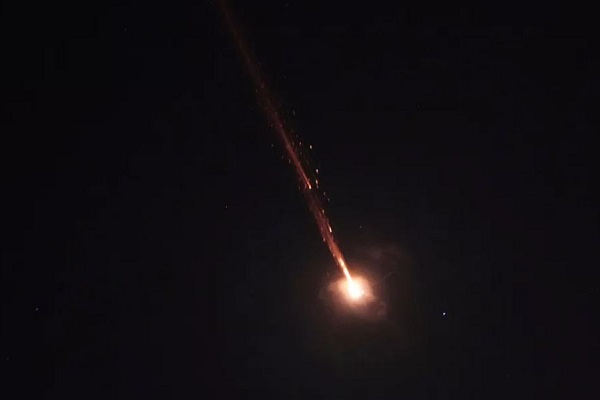Iran’s Strike Delivers ‘Major Blow’ to Israeli Military Infrastructure, IRGC Official Says

The operation, dubbed True Promise III, was carried out by the Islamic Revolution Guards Corps (IRGC) aerospace division in response to an earlier Israeli assault on Iranian territory.
In an early Saturday interview with Iranian state television, Brigadier General Ahmad Vahidi, senior advisor to the IRGC’s chief commander, announced the successful execution of the multi-phase operation. “These targets were successfully struck in multiple phases,” said Vahidi, who previously served as Interior Minister under President Ebrahim Raeisi.
The general detailed several key locations that were hit, including Nevatim Airbase in the north-central region and Ovda Airbase in the south of the occupied territories. He explained that these installations hosted command, control, and electronic warfare centers, which he said were directly involved in launching attacks against Iran.
Vahidi also cited Tel Nof Airbase, situated near Tel Aviv, as another significant target. Additionally, he noted that Israel’s ministry of military affairs and military-industrial facilities were struck during the retaliatory campaign.
Read More:
According to Vahidi, the operation delivered a "major blow" to the regime’s military capabilities and served as a “heavy show of force” by the Islamic Republic. He stressed that similar actions could be repeated if necessary, stating the intent of the operation was to “make them realize that they have committed a miscalculation and made a grave error.”
Iran’s response followed a series of Israeli airstrikes on multiple Iranian cities, including Tehran. These attacks aimed to assassinate senior Iranian officials and resulted in the death of Major General Hossein Salami, former commander-in-chief of the IRGC.
Read More:
Other top military leaders killed in the strikes included Major General Mohammad Bagheri, Chief of Staff of Iran’s Armed Forces; Brigadier General Amir Ali Hajizadeh, head of the IRGC aerospace division; and Major General Gholam-Ali Rashid, commander of the Khatam al-Anbiya Central Headquarters.
The raids also claimed the lives of renowned nuclear scientists Mohammad-Mehdi Tehranchi, Fereydoun Abbasi, and Dr. Abdol-Hamid Minoucher, along with more than 70 civilians—many of them women and children.
In his remarks, Vahidi asserted that Israeli leadership had assumed their initial strikes had crippled Iran’s defense capabilities. “They believed they had destroyed several of Iran’s military infrastructure centers and rendered the Islamic Republic incapable of retaliation,” he said. However, he warned that this assessment was gravely mistaken. “They must now await the consequences, which have only just begun.”



